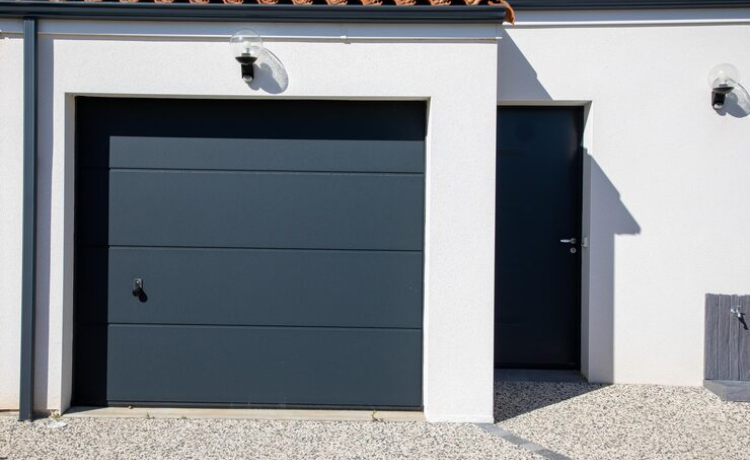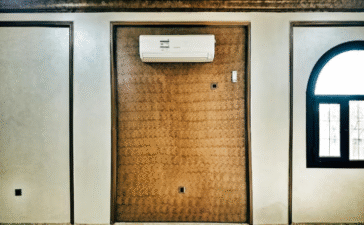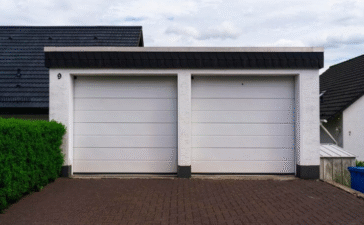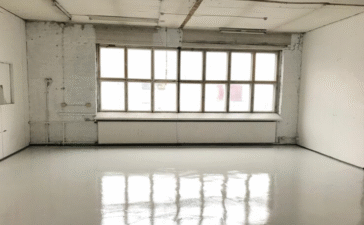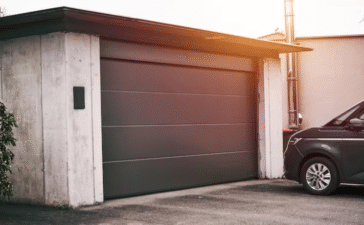Your garage door is more than just a convenient entry point; it’s a major access point to your home. Many homeowners overlook its security, assuming the standard opener is enough. However, a dedicated and robust garage door lock is your first line of defense against potential intruders. A weak or outdated lock can leave your home, vehicles, and valuables vulnerable.
This comprehensive guide offers expert-backed insights into everything you need to know about garage door locks. We will explore the different types available, provide step-by-step installation advice, troubleshoot common problems, and offer recommendations for the best locks on the market. By the end of this article, you will have the knowledge to select, install, and maintain a lock that keeps your property safe and secure.
1. Understanding Garage Door Locks: Types and Features
Choosing the right lock starts with understanding your options. The market offers a variety of locks, each with unique features, benefits, and levels of security.
Manual Garage Door Locks
Manual garage door locks are the traditional, time-tested option. These locks, such as T-handle locks or slide bolts, require you to physically lock and unlock the door, usually with a key or by sliding a latch. They operate independently of the electric garage door opener, providing a reliable mechanical barrier. While they lack the convenience of automated systems, their simplicity is their strength, making them less prone to electronic failure and a solid choice for a secondary security layer.
Automatic Garage Door Locks
Automatic garage door locks engage and disengage in sync with your electric garage door opener. When you close the door with your remote, the lock automatically secures a deadbolt through the door track, adding a physical barrier that complements the opener’s motor. This provides enhanced security without requiring any extra steps from you. Brands like LiftMaster have pioneered these systems, making them an excellent upgrade for homeowners seeking both convenience and better protection.
Smart Garage Door Locks
Smart garage door locks represent the cutting edge of home security, integrating seamlessly with your home automation systems. These locks allow you to control and monitor your garage door from anywhere using a smartphone app. You can grant temporary access to visitors, receive real-time alerts when the door is opened or closed, and check its status remotely. Smart locks often work with platforms like Amazon Alexa, Google Assistant, and Apple HomeKit, making them a central part of a connected and secure home.
Keypad Locks
Keypad locks offer convenient, keyless entry to your garage. Mounted outside the garage, these systems require a unique PIN code to open the door. This is a great solution for families, as it eliminates the need to carry keys and allows you to provide access to trusted individuals without giving them a physical key or remote. Modern keypads feature rolling code technology, which changes the access code after each use to prevent unauthorized entry.
Comparison of Different Lock Types
When comparing lock types, consider your priorities. Manual locks offer dependable, low-cost security but lack convenience. Automatic locks provide an excellent balance of security and ease of use, making them a popular choice. Keypads offer keyless convenience ideal for busy households. Smart locks deliver the ultimate in control and monitoring for tech-savvy homeowners who want to integrate their garage into a larger smart home ecosystem. Each type has its place, and sometimes the best solution involves combining multiple types for layered security.
2. How to Install a Garage Door Lock: Step-by-Step Guide
Proper installation is critical for a garage door lock to function correctly and provide maximum security. While some locks are suitable for DIY installation, others may require professional expertise.
DIY Installation of Manual and Automatic Locks
Installing a manual T-handle or slide bolt lock is a manageable DIY project for those with basic tool skills. You will typically need a drill, drill bits, a screwdriver, and a wrench. The process involves marking the lock position, drilling mounting holes through the garage door, and securing the lock with the provided hardware. For automatic locks that pair with an opener, installation involves mounting the deadbolt mechanism to the door track and wiring it to the motor unit, following the manufacturer’s specific instructions. Always ensure the lock aligns perfectly to avoid strain and ensure smooth operation.
Installing a Smart Garage Door Lock
Installing a smart garage door lock requires careful attention to compatibility and connectivity. You must ensure the lock is compatible with your existing garage door opener and that your garage has a strong Wi-Fi signal. Installation usually involves mounting a controller unit near the opener and connecting it to the system’s wiring. You will also need to pair the device with your home network and set it up through a mobile app. Given the electronic components, following the manufacturer’s guide precisely is essential for a successful setup.
When to Call a Professional
While many homeowners can handle basic lock installations, there are times when calling a professional is the wisest choice. If you are uncomfortable with drilling into your garage door, working with electrical wiring, or setting up smart home devices, a professional installer can ensure the job is done correctly and safely. Professionals can also recommend the best lock for your specific door and security needs, offering peace of mind that your lock is installed for optimal performance and durability. Lock mounting on certain types of doors, like those with heavy insulation or unique track systems, is often best left to an expert.
3. Common Problems with Garage Door Locks and How to Fix Them
Even the best garage door locks can encounter issues. Understanding common problems and their solutions can save you time and frustration.
Why Garage Door Locks Malfunction
Garage door locks can fail for several reasons. Misalignment between the lock and the strike plate is a frequent cause, often resulting from the garage door settling over time. Extreme weather can cause metal components to expand or contract, leading to jamming. Debris, rust, and lack of lubrication can also impede the lock’s mechanism. With electronic and smart locks, issues can stem from dead batteries, poor Wi-Fi connectivity, or software glitches.
How to Fix a Stuck or Jammed Lock
If your lock is stuck, first inspect it for visible obstructions or debris and clean it thoroughly. Apply a silicone-based lubricant to the keyway and moving parts to help free the mechanism. For manual locks, gently wiggle the key while applying light pressure to turn it. If the lock is part of an automatic system, try disengaging the opener and operating the lock manually to determine if the issue is with the lock or the opener.
When Your Garage Door Lock Won’t Open
If your lock won’t open, the troubleshooting process depends on the lock type. For manual locks, the key may be worn, or the internal pins may be damaged. For keypad locks, try replacing the batteries and re-entering the code. With smart locks, check your smartphone app for error messages and ensure your home Wi-Fi is working. If you’ve lost the key, you may need to call a locksmith.
4. Improving Your Garage Door Lock Security
Beyond a standard lock, there are several steps you can take to significantly enhance your garage door security and deter potential intruders.
Choosing High-Security Locks
When selecting a new lock, look for high-security features. Locks made from hardened steel offer superior resistance to drilling and cutting. Tamper-proof designs and complex keyways make lock-picking more difficult. Some modern locks also include alarms that sound if tampering is detected. Investing in a lock with these features provides a formidable barrier against forced entry.
Reinforced Garage Door Lock Options
For an additional layer of protection, consider reinforced lock options. A garage door deadbolt, similar to what you’d find on your front door, adds a significant security boost. Dual-locking systems, which secure the door on both sides, make it much harder to pry open. You can also install a garage door shield, which is a metal plate that reinforces the area around the lock, preventing thieves from breaking the lock to access the emergency release cord.
Garage Door Security Systems Integration
Integrating your garage door lock with a broader security system creates a comprehensive defense network. When your lock is connected to a home alarm system, any unauthorized attempt to open the door can trigger the alarm and notify you or a monitoring service. Smart home integration allows your garage lock to work in concert with security cameras, motion sensors, and smart lighting, creating automated security routines that activate when a threat is detected.
5. Garage Door Lock Alternatives and Upgrades
If your current lock isn’t meeting your needs, several modern alternatives and upgrades can enhance both security and convenience.
Electronic Garage Door Locks
Electronic garage door locks offer a step up from traditional manual locks without requiring full smart home integration. These locks typically use a keypad or a remote fob for keyless entry and may include features like automatic locking. They provide a good middle ground, offering more convenience and security than a manual lock without the complexity of a smart system.
Smart Garage Door Automation
Full smart garage door automation turns your garage into a connected part of your home. By integrating a smart lock with a compatible opener, you can control your garage door from anywhere, set schedules for opening and closing, and grant customized access to family members or service providers. This level of control not only boosts security but also adds a new layer of convenience to your daily routine.
Best Garage Door Locks for Smart Homes
When choosing a lock for your smart home, compatibility is key. Look for locks that work with major platforms like Amazon Alexa, Google Assistant, or Apple HomeKit. Top-rated models from brands like Chamberlain myQ, August, and Lockly offer robust features, reliable performance, and seamless integration, allowing you to control your garage door using voice commands or within a single smart home app.
6. Unlocking a Garage Door When You’ve Lost the Key or Remote
Losing your key or remote can be stressful, but there are ways to regain access to your garage without compromising its security.
What to Do If You Lose Your Garage Door Key
If you lose the key to a manual garage door lock, the most secure option is to have a locksmith rekey the lock or replace it entirely. This ensures that the lost key can no longer be used to access your garage. Attempting to pick the lock yourself can cause damage and is generally not recommended unless you have experience.
Remote Lock Issues
If your garage door remote is lost or stops working, the first step is to check the batteries. If that doesn’t solve the problem, you may need to reprogram it. Most garage door openers have a “learn” button on the motor unit that allows you to pair a new remote. To maintain security, it’s also important to clear the opener’s memory of the lost remote so it can no longer be used.
Contacting a Professional Locksmith
In any lock-related emergency, such as a lost key, a malfunctioning lock that you can’t fix, or being locked out, a professional locksmith is your best resource. A qualified locksmith has the tools and expertise to resolve the issue quickly and safely, whether it involves opening the lock, rekeying it, or installing a replacement.
Also Check: “linear garage door opener“
7. Choosing the Best Garage Door Lock: Expert Recommendations
With so many options available, selecting the best garage door lock requires careful consideration of security, durability, and user needs.
Top-Rated Garage Door Locks of 2025
Based on expert reviews and user feedback, several locks stand out in 2025. The LiftMaster 841LM Automatic Garage Door Lock is highly recommended for its seamless integration and robust security. For smart home enthusiasts, the Chamberlain myQ Smart Garage Control continues to be a top choice for its reliability and broad compatibility. In the manual lock category, the National Hardware N280-784 V7651 Deadbolt Lock is praised for its simple, durable construction.
Comparing Security Features
When comparing locks, prioritize models with hardened steel components, anti-pick technology, and tamper alerts. For smart locks, look for features like two-factor authentication and encrypted communication to protect against hacking. Customer reviews often provide valuable insights into a lock’s real-world performance and durability.
How to Make the Right Decision
The right garage door lock for you depends on your budget, lifestyle, and security requirements. If you value convenience and connectivity, a smart lock is an excellent investment. If you prefer simple, reliable security, a high-quality manual deadbolt may be sufficient. Consider your home’s overall security setup and choose a lock that complements it effectively.
Reclaim Your Peace of Mind
Your garage door is a critical component of your home’s security. By choosing the right lock and ensuring it is properly installed and maintained, you can protect your property and gain valuable peace of mind. Whether you opt for a simple manual deadbolt or a fully integrated smart lock, investing in garage door security is a decision that pays dividends in safety and confidence.
Ready to enhance your garage’s security? Explore our recommended suppliers and professional installation services to find the perfect locking solution for your home.
Frequently Asked Questions
How much does it cost to install a garage door lock?
The cost varies widely. A simple manual slide lock can be purchased for as little as $15 and installed yourself. An automatic lock like the LiftMaster 841LM costs around $130, plus installation if you hire a professional. Smart garage controllers range from $30 to $100, and professional installation can add another $100 to $200.
Can I install a garage door lock myself?
Yes, many garage door locks are designed for DIY installation. Manual slide bolts and T-handles are generally straightforward. Smart lock controllers are also often DIY-friendly, but require some comfort with wiring and app setup. If you are unsure, hiring a professional is always a safe bet.
What is the most secure type of garage door lock?
A layered approach is often the most secure. Combining a robust automatic deadbolt lock that works with your opener and a high-quality manual slide lock for when you’re away for extended periods provides excellent protection. Smart locks add a layer of monitoring and control that further enhances security.
How do I maintain my garage door lock?
Regular maintenance is simple but important. Keep the lock mechanism clean and free of debris. Lubricate moving parts with a silicone-based spray every six months. For smart locks, regularly check for firmware updates and ensure batteries are fresh. Periodically check the alignment to ensure the bolt engages smoothly.
Can I add a lock to any garage door?
Most garage doors can accommodate an additional lock. However, the type of lock you can install may depend on the door’s material, construction, and opener system. It’s important to choose a lock that is compatible with your specific door to avoid causing damage or compromising its function.
